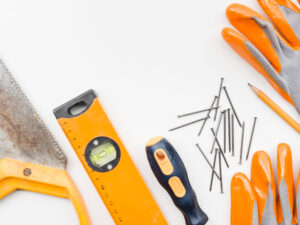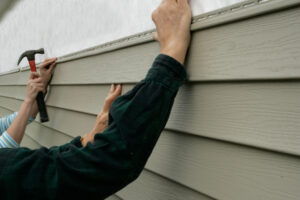7 Ways to Avoid Hair Loss When Taking Creatine
One of the most often used supplements in the fitness industry is creatine. It is used to boost strength, increase muscle mass, and enhance workout performance. However, there have been worries over a potential connection to hair loss. This has sparked a lot of debate about whether or not creatine causes hair loss. Some people have claimed to experience hair loss or thinning after using creatine, despite the fact that there is currently insufficient scientific data to support this claim.
If you’re wondering, “Does creatine cause hair loss?”, there’s no need to fear. While concerns about hair loss exist, there is no confirmed evidence linking creatine directly to hair thinning. However, if you’re among those who use creatine and want to take precautions, here are seven useful pointers to help you prevent hair loss while taking creatine.
1. The Relation between Creatine and Hair Loss: An Overview
Particularly when it comes to creatine and its effects on hair, it’s crucial to remain calm before choosing the next course of action. According to certain research, creatine can increase the levels of DHT, a steroid linked to hair loss, particularly in people who are predisposed to baldness genetically, whether they are men or women. It is crucial to remember that further research on this subject has to be done.
According to a 2009 study, male rugby players who took creatine supplements had higher DHT levels, which raised concerns about possible hair loss. Other research, however, has not been able to prove a link between hair loss and creatine. If you are concerned about how creatine may affect your hair, it is advised that you consult your physician.
2. The Right Measure
One of the best ways to avoid the possible negative effects of hair growth when using creatine is to use it correctly. It is a common practice for people to overdo supplements and believe that this will lead to better muscle tone. However, this can lead to imbalances in the hormonal system that may adversely affect the hair.
The ideal quantity of creatine supplements is between 3 to 5 grams daily. This is the ideal quantity that will enable you to get the most out of the supplement without having to feel like you have too much of it in your system. Following the right measures will assist you to avoid some of the side effects that are associated with creatine consumption, including hair loss.
3. Watch Your Diet to Avoid DHT
Diet has a crucial role in the body’s regulation of DHT. Certain meals that are high in zinc, magnesium, and vitamin B6 will help to promote hair growth and lessen the effects of human testosterone. Magnesium aids in controlling elevated testosterone levels, while zinc is another necessary mineral that aids in controlling the conversion of testosterone to DHT.
Lean meats, almonds, spinach, and pumpkin seeds are among meals that can help counteract the potential DHT increase caused by creatine use. Reducing consumption of processed foods and sugars is also advised because these substances can cause inflammation and other hair loss-causing processes.
4. Stay Hydrated
This is because creatine improves strength and performance by attracting water to the muscles. If one does not drink enough water, this might lead to dehydration, which can cause hair loss. Hair follicles may become weak and unable to support the hair development cycle if the body is dehydrated.
This implies that you should make sure you consume plenty of water throughout the day, particularly if you’re using creatine. Eight to ten glasses of water should be consumed each day on average, and more water should be consumed before and after physical activity to replenish lost fluids.
5. DHT Blockers
DHT blockers combined with creatine might be something to think about if you’re concerned about DHT and your hair. Products or supplements known as DHT blockers are claimed to stop the production of DHT.
Nettle root, saw palmetto, and pumpkin seed oil are a few natural DHT blockers. These have the ability to lower the body’s DHT levels, protecting the hair follicles in the process. You might try taking a DHT blocker to stop the effects of the elevated DHT if you have hair loss when using creatine. However, it is best to see a physician before taking any additional supplements.
6. Leave Creatine and Rest
Breaking off from creatine can occasionally assist prevent the body from becoming dependent on the supplement and prevent any long-term consequences, such as those on hair growth. Using creatine for a predetermined amount of time and then pausing to give the body time to readjust itself is known as the “cycling” technique.
For example, you could take creatine for 6–8 weeks, then pause for 2–4 weeks before beginning again. It enables your body to recuperate and reap the benefits of creatine. This may help avoid hormonal imbalances that might cause hair thinning, but it is not a 100% effective method of preventing hair loss.
7. Take Care of Your Health
Another aspect of general health is hair. Even if one is not taking creatine, stress, sleep deprivation, and poor lifestyle choices can exacerbate hair loss. For this reason, maintaining your general health is essential to having good hair.
Make sure you exercise frequently, reduce stress with techniques like yoga or meditation, and get adequate sleep. A balanced diet rich in fruits, vegetables, and healthy fats will also help your hair in addition to your physical fitness objectives.
Conclusion
Many individuals ask themselves, “Does creatine cause hair loss?” yet the answer is still unknown. There is insufficient data to conclude that creatine causes hair loss, even though some research has suggested that it may affect DHT levels. You may find the following advice useful in preventing hair loss after using creatine.
It is always advisable to consult a dermatologist or your physician if you are concerned about hair loss. They will be able to tell you about the potential risks and offer advice on how to keep your hair safe while taking creatine. To get the most out of your exercise program in the interim, avoid heavy drug use, drink plenty of water, and work to generally enhance your health. For more expert insights on hair health and wellness, visit Tips by Doctor.














Post Comment